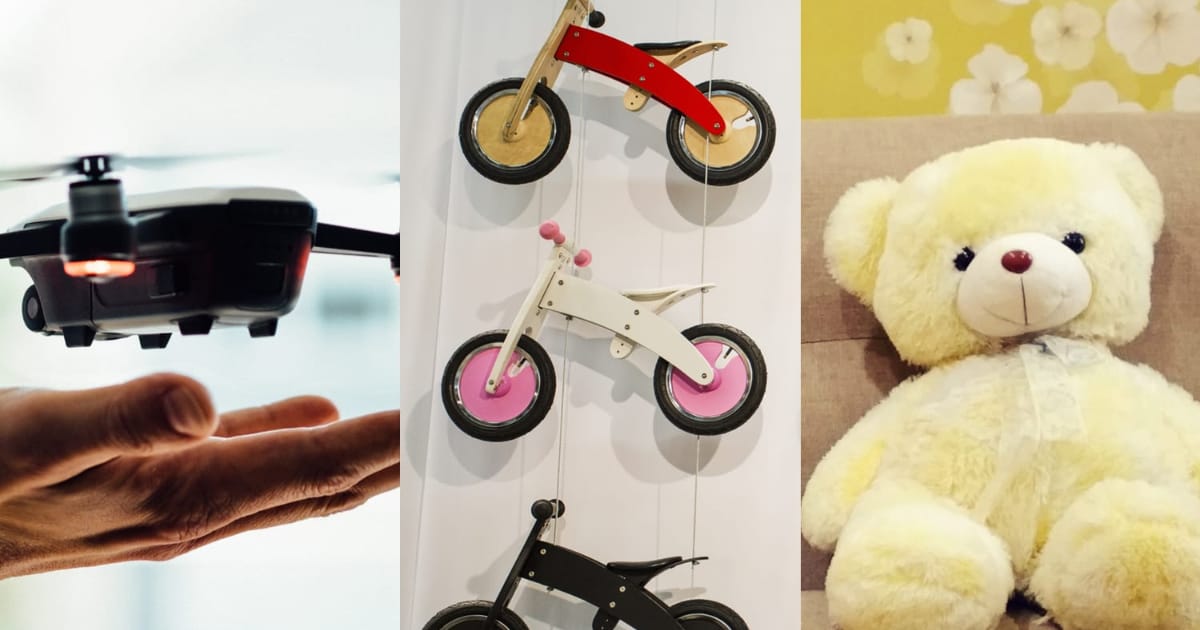
We know what your children want—we’re psychic!
Just kidding about being psychic. We don’t have extra-sensory powers. Honest. But we do know what your children want from you right now.
We didn’t use market research. Didn’t analyze the buying trends of kids and pre-teens. We aren’t privy to the data coming out of New York. None of that is necessary here.
You don’t need the advice of gurus and experts …
You don’t need the advice of gurus and experts to understand what your children want. This year, next year, or in any other year. More than a teddy bear, a new bike, or a drone, it’s this. The #1 thing your child wants, regardless of age:
Your time and attention
What your children want is more time with you, their parents.
This answer is not a twist for its own sake. “The most precious reward is time. Gotcha.” No, it isn’t a shallow gimmick. We’re pointing out a universal truth. One that’s easy to forget today. You are the most valuable thing in your child’s life.
You are the most valuable thing in your child’s life.
Your time and attention are a gift to your kids. Focusing on your son or daughter isn’t just worth a lot, it’s priceless. We know this from adults who received this gift as children. And sadly, we also know it from adults who received very little.

If you’re convinced …
Our mission is to remind parents of what they already know.
If you’re fully aware of your value to your kids, then great. Keep going! Download our free guide, with ideas for spending quality time with your children. It’s called “25 Rewards of Distraction-Free Parenting.” You can get it here, free.

Through this free guide, you’ll find new and easy ways to share your time and attention. You’ll create new memories with your kids. And get inspired to spend deeper, distraction-free time, more frequently. Let us know how it helps.
“You seriously don’t know my kid”
On the other hand, if you’re not convinced that you’re what your children want … stay with us. Maybe we can persuade you.
Your child really does want more of you. It may not look like it, right now. But kids are designed to want their parents. It’s a theme of life. And in your particular situation, the evidence is buried under a fast-paced routine. But it’s there.
We’re talking to parents of young children, up to the teenage years.
We’re talking to parents of young children, up to the teenage years. After that, it’s adult territory. Beyond the scope of this blog post. We’re addressing parents whose children rely on them for food, shelter, guidance, and emotional support.
If this is a sore subject …
It’s understandable. You don’t see evidence that you’re what your children want. They’re moving targets. Strong-willed. Demanding. They can approach us with an agenda. They want something. And probably not more time with Mom and Dad.
As parents, we listen. We try to embrace what they want. If it’s within our ability to give, we often do. It isn’t easy to say yes. Our children often want things we can’t give them. At least, not right then.
We parents play defense too often …
It’s why we wrote this post. We parents play defense too often, fielding our children’s requests. They’re on offense. Asking for things that will supposedly prove our love. It’s a losing arrangement. We think there’s a solution. Read on.
Why isn’t it easier?
If you love someone, it should naturally show. It’s what we think, wishing it were that straightforward. We know it doesn’t work that way in close relationships. Marriage is a hotbed of miscommunication for many couples, for example.
It’s different with our children. It hurts a bit more. We love our kids in a way that’s perhaps more unconditional than any other relationship. It should show, we think. When we feel our children don’t appreciate us, it hurts a bit worse.
There is a disconnect that happens, in the best of families.
We know our children love us. They know they do. That closeness we seek, it isn’t as easy as our intentions feel to us. Maybe it isn’t as obvious to them. There is a disconnect that happens in the best of families. However it begins, we as parents have the ability to change the dynamic. We can get closer to our kids.

We need to believe it first
As our kids learn to walk, there’s a healthy distance that gets created. Our kids need to stand on their own two feet. As parents, we encourage this. We want our children to be self-sufficient in key areas. Starting with the bathroom!
It extends to making friends with other children. Being able to self-play. To have ideas about things they like. Their favorite color. The shirt they want to wear that day. All the way to what sports they want to play. How they see themselves.
[W]e need to believe they need us, more than we (and they) think.
As parents, we watch this maturation before our eyes. It makes us proud. And if we’re not careful, we step back too far. If we listen to experts in the media, we hear a jarring philosophy. That our kids are mini-adults. They need us to fund their growth and stay out of the way. If we listen to this modern theory, distance gets created automatically. If we want more closeness with our kids, then we need to believe they need us, more than we (and they) think.
What does the data say?
Today’s parents are advised to trust science to guide decisions. Where’s the scientific data on parenting? It’s all over the place.
Here’s what the data says.
- You’re spending a lot of time with your kids.
- You don’t spend enough time with your kids.
- You don’t need to spend time with your kids.
Kind of confusing. It almost seems like you can find data top support whatever you do. It’s why we don’t focus on data. Scientific analysis can overcomplicate what we all know to be true. Up until they go off to college, our kids need us daily. Which includes our time, our patience, all the best we have to give.
Scientific analysis can overcomplicate what we all know to be true.
Relationships are bigger than science. Which is why, we choose to focus on that other great data center, the human heart.
What your children want is your time
We can rely on studies to soothe our consciences. Or, look at what we know. Kids love toys, but they need their parents. They crave experiences but hope for time with Dad. Kids like status but want to be #1 with their Mom most of all.
Artistic sources through the ages, from Charles Dickens to Star Wars, bear this out.
Humanity is fixated on the subject of parents. Artistic sources through the ages, from Charles Dickens to Star Wars, bear this out. At a deep level, there’s a longing for a parental bond. Adopted children often search for their birth parents, or want to. Babies and toddlers will be engrossed in a toy. But when a parent picks up the baby, that toy is forgotten! Do we really think that instinct goes away?
One other thought. To sell more cartons of milk, an advertising agency realized something. People appreciate milk the most when the carton’s empty. It’s how the old tagline “Got Milk?” was started. Similarly, young kids will oven attentive parents for granted. But they’ll notice their parents when the connection is missing. Rest assured, your children want to spend time with you, most of all. Ignore any reigned indifference you see. Build that bond.
How things get in the way
Try as we might, we watch the bond with our babies change. Things, items, and objects become important. It could be a toy, a new hobby, or school activities. The change could also come from the parent. We can’t put down our cell phone when we should. We’re in a busy season at work.
When “things” take over, a family settles into a new routine. It doesn’t seem all that bad. For a time, things are kinda fun. It’s how things get in the way. They replace the close connection parents and kids have with each other. Things can be good. But as the old saying goes, the good is the enemy of the best.
[a]s the old saying goes, the good is the enemy of the best.
Our kids’ Christmas lists get longer. Our children develop more wants and needs. Family life gets complex. And we begin to play defense. We say yes, no, or maybe later. It becomes a consumer kind of relationship. Not the close bond we want.

Reassert yourself as the best gift
If any of this rings true, we have one suggestion. Change the game. Flip the script. A focus on things is normal in every household. Instead, make the focus on you and your children. The parent-child relationship can bounce back at their age, pretty quickly. Things are often a substitute for family. They’re optional.
It’s the start of distraction-free parenting.
In order to reassert yourself, you’ll probably need to focus your schedule. Drop some things out of your routine. It’s the start of distraction-free parenting. The ability to slow down. To give undivided attention for a period of time everyday.
Our free guide can help. It’s called “25 Rewards of Distraction-Free Parenting.” You can get it free, here. Our guide is a showcase of activities that you and your children can do together. It gets the ball rolling. Who knows where you’ll end up!
We’re each trying our best
Distraction-free parenting isn’t perfect parenting. It’s not an elitist parenting movement. Distraction-free parenting is a goal.
Distraction-free parenting is a goal.
We’re all trying to be the best parents we can be. There’s an effort to spend more time with our kids than our parents did with us. Then, our good intentions get derailed by a busy day. We don’t share enough of ourselves as we’d like.
In one sense, it will all work out. A loving home atmosphere covers for missed time. However, time is fleeting. We can’t be a parent when we’re not available. We miss out when we’re distracted by non-critical activities. Like, the cell phone. It’s a constant tug-of-war. And we need to keep trying, to find our best balance.
Support for busy parents
So actually, all that scientific data can be true. And yet, we’re not looking to be on the right side of data. We’re looking to draw closer to our families. To make an impact on our kids. And to enjoy our time when them while they’re young.
We’re not experts. We’re parents, like you.
To do this takes help. We need to rely on each other. For ideas. Encouragement. Support. It’s what we offer through this website. We’re not experts. We’re parents, like you. Seeking to share what works for us. And asking for your ideas to help us.
This year, next year, or any year, your children want a close–or closer–relationship with you. To get there, why not try something new? Forge a closer relationship with other parents. See how much fun, and joy, being a parent can be in this new year.
Leave a comment below
What’s the #1 goal you have as a parent this new year? Share one with us and give us something to aim for.
This post first appeared at The Joyful Father.





